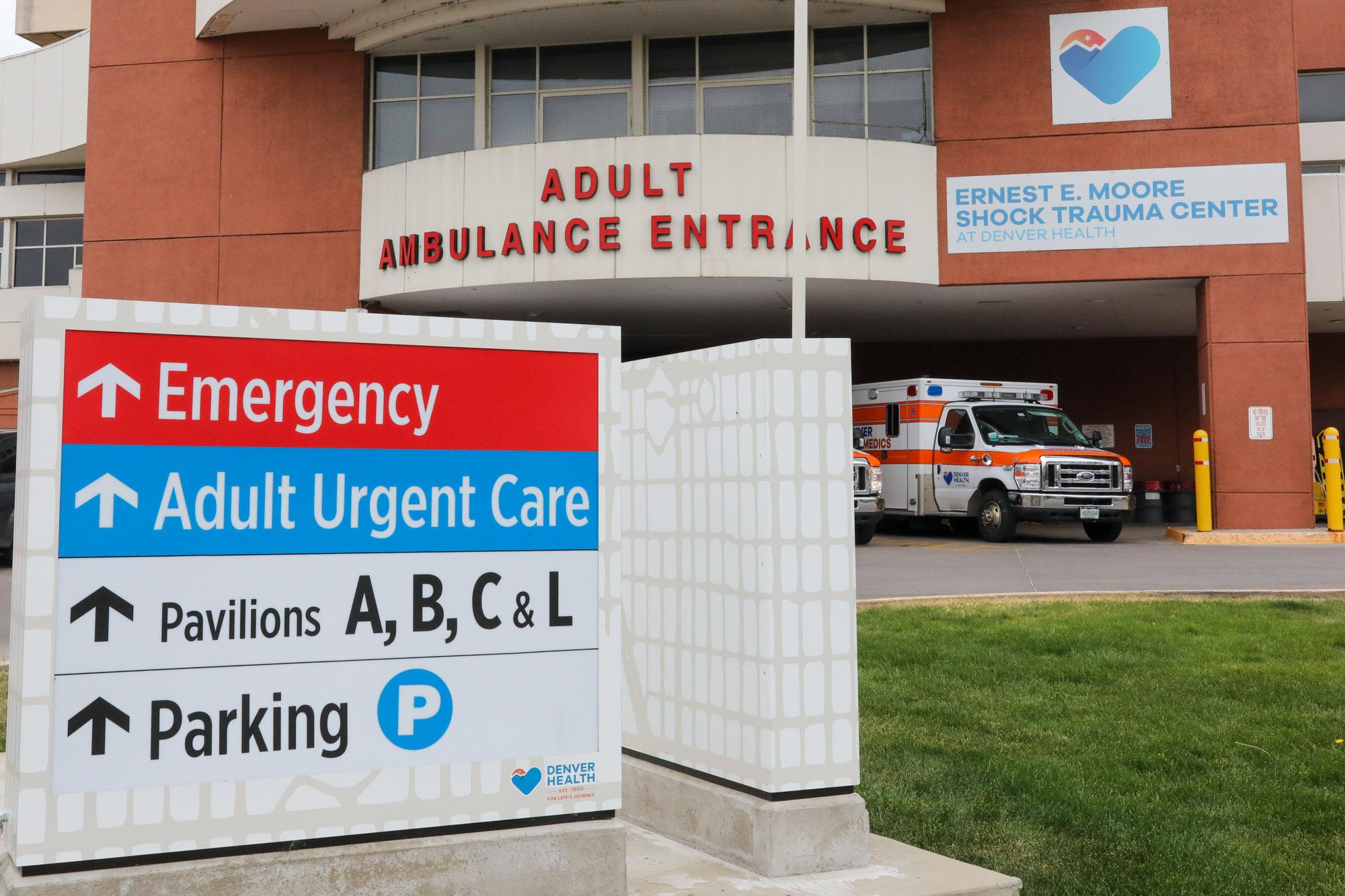
In a clear sign of an improving COVID-19 outlook, the state of Colorado said Thursday it is dropping the guidelines it put in place to help manage pandemic surges for hospital staffing and emergency medical services, effective immediately.
The crisis standards of care protocols were put in place when hospitals and EMS were pushed to the limit by the double variant punch of delta and omicron in recent months.
Colorado’s Chief Medical Officer Dr. Eric France said the decision "is based on recent modeling and steadily declining cases and hospitalizations." He said the numbers suggest the immediate strain COVID-19 places on the state should keep dropping in the coming weeks.
The state health department, the Colorado Department of Public Health and Environment, shared advance notice of the decision with health care providers.
“I think it makes sense, I think, to lift it because the COVID issue is resolving” for now, said Dr. Anuj Mehta, a pulmonary care physician with Denver Health, who has worked on a team developing crisis standards and language for the state.
But he cautioned that the pandemic spotlighted chronic and enduring problems plaguing the system.
“Hospital and healthc are capacity continue to be exceedingly strained, independent of COVID. That is something that will last likely for at least a couple of years and will take a dramatic rethinking of how we structure our healthcare system. I think that's the take home message,” Mehta said. “My gut reaction with the staffing is that the problem is not over.”
COVID-19 hospitalizations are now falling fast. On Wednesday, there were 641 patients in the hospital, according to the state’s website. That's more than a thousand fewer than there were about a month ago when they hit 1,676, within 200 of the all-time pandemic peak.
Health care staffing is still tight in some places. On Wednesday, 41 percent of hospitals said they anticipate staffing shortages, and 25 percent anticipate ICU bed shortages in the next week.
The positivity rate, the rate of positive tests, a key gauge of transmission, has plunged as well. It's now under 7 percent. Just a month ago it was more than four times that, almost 30 percent.
The omicron variant drove the recent staggering spike of contagion. It moved like a tsunami, hitting hard and fast and driving up cases through the roof. But numbers from the state’s COVID-19 dashboard suggest the wave caused by the variant is now mostly moving on.
The case numbers show the same trend. Just after the new year, the state health department reported nearly 20,000 coronavirus cases on Jan. 6. As of Tuesday, the number was below 1,200. Those numbers don't include rapid at-home tests, which rely on people reporting their positive tests to the state, so the real figures were most certainly higher.
Omicron carved a devastating path. For three straight weeks more than 225 people a week died. In one week in January, the virus killed 274 people in the state — more lives than any one week of the delta wave, according to the state’s data.
Crisis standards of care are guidelines for how the medical community should allocate scarce resources. The state activated them for health care system staffing on Nov. 9, 2021, as the delta wave was building. It did the same for emergency medical services on Jan. 7, when the omicron wave was building towards its peak.
“Crisis standards of care are an important tool to help manage health care delivery in times of acute crisis,” said France. “We recognize that health care systems continue to face challenges due to chronic staffing issues across the economy, and we thank health care workers for their service protecting Coloradans throughout the COVID-19 pandemic.”









